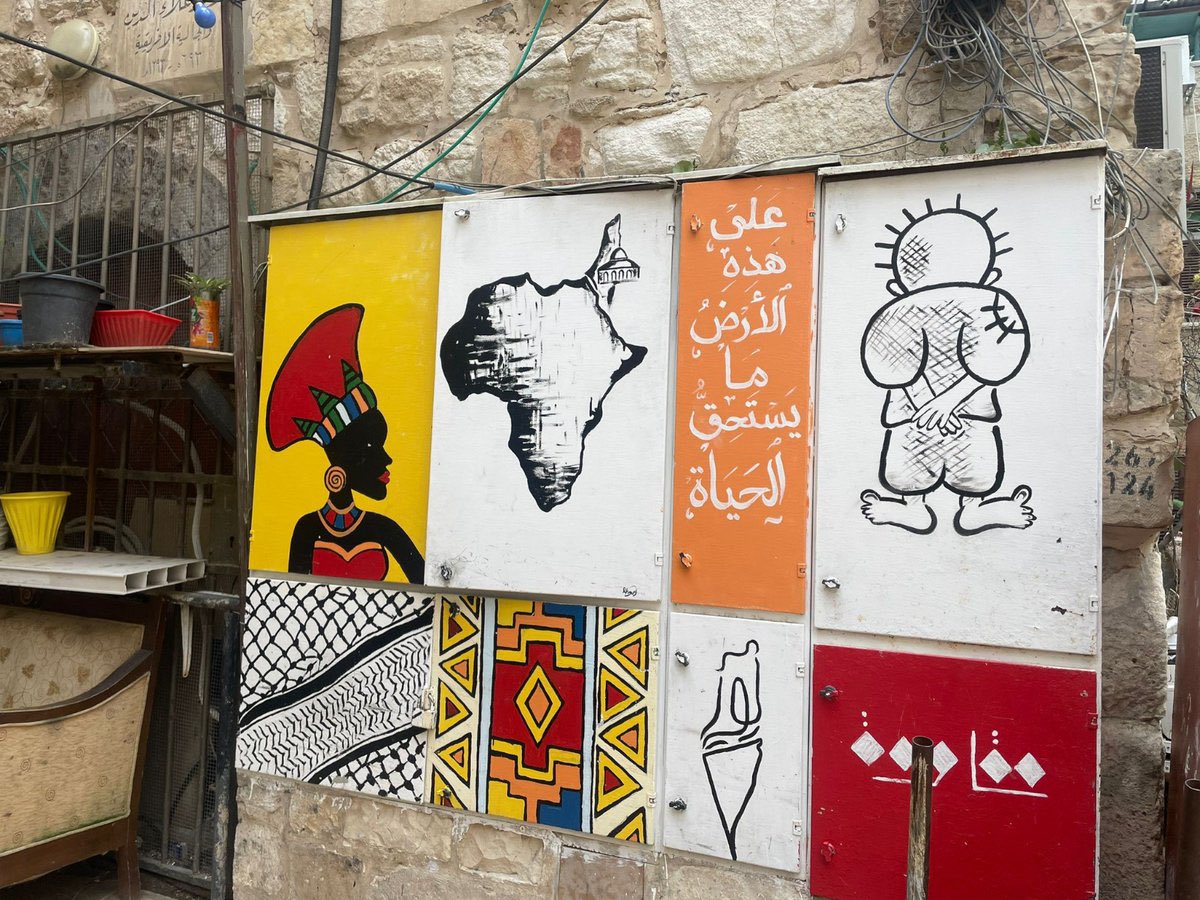This week a #BBCAfricaEye investigation exposed widespread use of torture by the Nigerian security forces.
That investigation is here 👇
That investigation is here 👇
https://twitter.com/BBCAfrica/status/1226853773924093952?s=20
Videos from social media show that one torture method in particular—a technique known as #tabay—is routinely used against detainees.
A warning: this thread contains disturbing scenes including images of torture.
A warning: this thread contains disturbing scenes including images of torture.
This footage contains a clue.
It comes from the documentary Cry Freetown, shot by @sorious in 1999 at the height of Sierra Leone’s civil war.
The soldiers use #tabay to restrain a boy. And those soldiers are Nigerian.
It comes from the documentary Cry Freetown, shot by @sorious in 1999 at the height of Sierra Leone’s civil war.
The soldiers use #tabay to restrain a boy. And those soldiers are Nigerian.
Thousands of Nigerians were sent to Sierra Leone and Liberia as part of a West African peacekeeping force called ECOMOG.
We tracked down three Nigerian soldiers who served with ECOMOG - and all three confirmed that this is where they first saw #tabay.
🔊[sound on]
We tracked down three Nigerian soldiers who served with ECOMOG - and all three confirmed that this is where they first saw #tabay.
🔊[sound on]
The Liberian rebels, though, did not invent this technique.
One former fighter, Madras Gontee, told #BBCAfricaEye that in the early 1990s, he was sent to a place called Camp Tajura in Libya.
One former fighter, Madras Gontee, told #BBCAfricaEye that in the early 1990s, he was sent to a place called Camp Tajura in Libya.
Now Mitiga International Airport, Camp Tajura was an old US airbase on the outskirts of Tripoli that Libya’s former dictator, Muammar Gaddafi, used as a training ground for African revolutionaries.
It was here, says Gontee, that he first saw #tabay
🔊[sound on]
It was here, says Gontee, that he first saw #tabay
🔊[sound on]
It’s possible that other African troops also picked up #tabay from Gaddafi’s Libya.
These illustrations are based on the testimony of detainees tortured in Chad under former leader Hissène Habré in the 1980s.
These illustrations are based on the testimony of detainees tortured in Chad under former leader Hissène Habré in the 1980s.
These images were drawn in 2015 by torture survivors from Eritrea.
Rebel groups from both Chad and Eritrea received military support from Libya in the 1970s.
Rebel groups from both Chad and Eritrea received military support from Libya in the 1970s.
We don’t know where Gaddafi’s men learnt this technique, but they were not the first to use it.
This relief—a cylinder seal from the Sumerian civilization—was made in Uruk, Mesopotamia, more than 5000 years ago.
It shows captives bound at the elbows and suspended.
This relief—a cylinder seal from the Sumerian civilization—was made in Uruk, Mesopotamia, more than 5000 years ago.
It shows captives bound at the elbows and suspended.
At around the same time, the exact same technique was being used on prisoners of war in Egypt.
This is a fragment of the Battlefield Palette, held at the @AshmoleanMuseum and probably made in Abydos around 3100 BC.
This is a fragment of the Battlefield Palette, held at the @AshmoleanMuseum and probably made in Abydos around 3100 BC.
About 1800 years later, prisoners tied in the same way were carved onto the walls of the Temple of Ramses II at Abu Simbel in Upper Egypt.
This statuette, held in the @britishmuseum, is from the Kingdom of Kush that ruled over Egypt & Sudan. It was made around 2000 yrs ago.
The captive, ‘the king of the Nubians’, is bound in one of the variants of #tabay that is still used in parts of Africa.
WARNING: graphic
The captive, ‘the king of the Nubians’, is bound in one of the variants of #tabay that is still used in parts of Africa.
WARNING: graphic
Nigeria is not the only country in which this technique is still in use.
In Chad it's called ‘Arbatachar’. In Uganda, ‘Kandoya’.
In the course of this investigation, we found visual or documentary evidence of #tabay being used in at least 17 countries across the continent.
In Chad it's called ‘Arbatachar’. In Uganda, ‘Kandoya’.
In the course of this investigation, we found visual or documentary evidence of #tabay being used in at least 17 countries across the continent.
You can watch the full #BBCAfricaEye investigation into the use of this technique by the Nigerian security forces on @BBCAfrica's @YouTube channel > 

This thread has been put together by #BBCAfricaEye’s history nerds 🤓, @Yaolri and @danielsilas
#NothingStaysHiddenForever
#NothingStaysHiddenForever
@Yaolri @danielsilas Special thanks @KelvinNews & @effisfor for editing & motion design on this story
• • •
Missing some Tweet in this thread? You can try to
force a refresh











